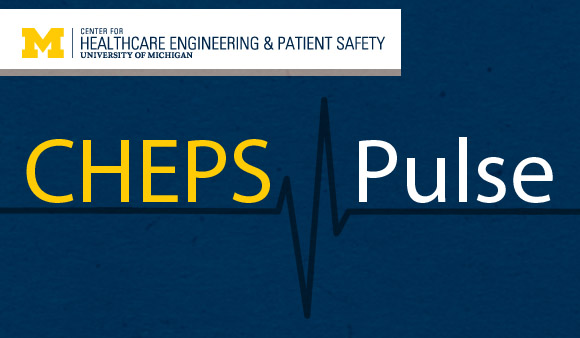In This Issue
- CHEPSter to CHEPSter: Emily Lindblad & Karmel Shehadeh
- Recent News
- Student Blog
- Where in the World is CHEPS?
CHEPSter to CHEPSter
An Interview with CHEPS Alum Dr. Karmel Shehadeh by CHEPS Student Emily Lindblad
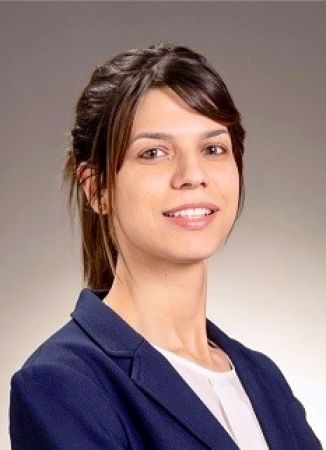
Karmel Shehadeh began working at CHEPS in August of 2015, the same year she started her Ph.D. in Industrial and Operations Engineering at the University of Michigan. “I always wanted to be a Michigan Wolverine…The day I got my admissions, I celebrated like I’ve never been happier. That was the happiest moment of my life,” she said. During her time at CHEPS, she was the team leader for SCOPES, a project focused on an optimization-based scheduling tool for endoscopy scheduling, and was briefly part of the M-Safety project which focused on improving awareness of catheters and skin-wounds at the patient bedside in order to reduce hospital-acquired infection.
After she graduated, Karmel worked at Heinz College of Information Systems and Public Policy at Carnegie Melon as a Presidential and Dean post-doctoral fellow from August 2019-August 2020. Karmel began working at Lehigh University as an Assistant Professor in the Industrial Systems Engineering department this fall. Karmel’s methodological research interests include scheduling theory and algorithms development, optimization under uncertainty, and mixed-integer programming. Her primary application areas and expertise are in healthcare operations and analytics. She also works on transportation and facilitation problems but connects them to healthcare. Karmel is interested in healthcare because “There will always be a problem. The problems are usually complex enough to both derive theory that is nice, new and novel, and also have an impact.”
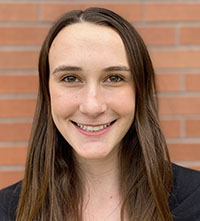
I’m currently a student at Lehigh, working remotely with CHEPS. It was interesting speaking to a professor at my home institution who previously worked at CHEPS. I am extremely grateful to have worked at CHEPS over the summer thanks to SROP and to continue this fall. CHEPS is unique to the University of Michigan. Other universities have similar research groups or programs, but it is not on this large of a scale. Since CHEPS is so well-established at the University of Michigan, I asked Karmel what she thought made CHEPS as successful as it is. She replied by saying, “We have a lot of collaboration, the family spirit, we are all friends, and most importantly I would say Amy and the staff.”
Part of what makes CHEPS special is that it is comprised of students with a variety of backgrounds such as IOE, public health, nursing, computer science, and I, myself, am a math major. When all of these different academic backgrounds come together, students can easily learn new skills from one another. Another important aspect of CHEPS is that we are a family. “My team used to call me mom,” Karmel said. Even though her team is now scattered across the country, they still keep in touch and celebrate each other’s accomplishments. She repeatedly mentioned the value of the family spirit of CHEPS and said, “It will always be my home, I will always have them, and I’ll always come back.”
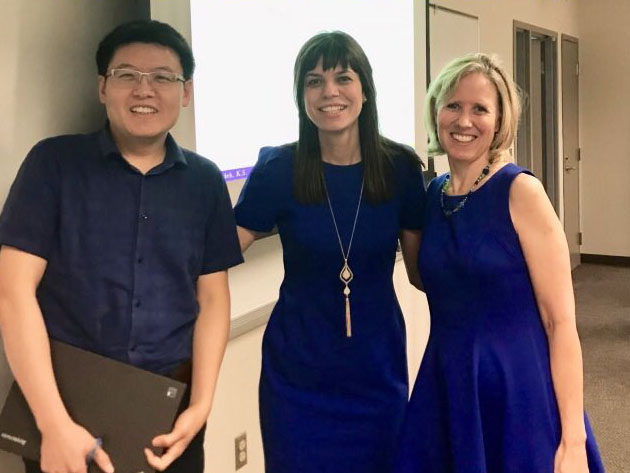
Karmel shared some of the valuable lessons she learned at CHEPS, “Personally, family spirit is the most important [thing] and academically you have to be patient in research.” Additionally, Karmel emphasized her mentorship to students while being the team lead of the SCOPES project as an experience that shaped her as a professor. After leaving CHEPS, it was not difficult for her to continue her research and to continue her mentorship at another University. Her biggest challenge after leaving CHEPS was how much she missed everyone. “You can never leave your family and be happy,” she said. Karmel recommends that current CHEPsters, “Enjoy your time, make a lot of friends, learn from others, think broadly, dream big, and follow your heart.”
When I first started at CHEPS in June, I was nervous to begin working with such a talented group. I quickly realized that I had nothing to be worried about as everyone gave me a warm welcome. After speaking with Karmel, I understand why she feels the ways she does and I feel even more fortunate to be part of CHEPS. I have the opportunity to learn from outstanding scholars and have also formed lasting relationships with my fellow CHEPsters. It is heartwarming knowing that once you leave CHEPS, the network of support always remains. Once a CHEPSter, always a CHEPSter.
Recent News
- COVID 19 and Health Disparities: All Hands on Deck, 10/20/20
- CHEPS Seminar with Mark Van Sumeren, 10/19/20
- CHEPS Seminar with Andy Van Sumeren, 10/12/20
- Lunch & Learn with Nicolas Tempels, 10/9/20
- CHEPS Seminar with Robin Brewer, 9/28/20
CHEPS Student Blog Posts
This summer CHEPS students blogged to share life at CHEPS from the student perspective. Stay tuned for new student blogs coming soon!
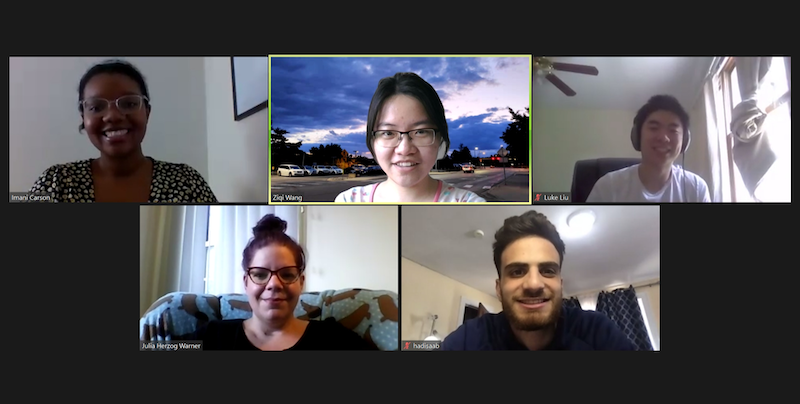
“It is exciting to see how engineering can help with hospital management, especially in the ICU, a unit that has a high cost, high quality requirements, and vital importance for critically ill patients. Especially with the current pandemic of COVID-19, it is important to utilize limited medical resources to save more patients’ lives. I am always excited to hear from Amy that what we did is helpful for the hospital.” – Ziqi Wang
- Pushpendra (Ishu) Singh, Industrial & Operations Engineering Master’s 2020
- Dean Golan, Industrial & Operations Engineering Undergraduate
- Matt Howard, Industrial and Operations Engineering Undergraduate
- Luke Liu, 2020 Industrial & Operations Engineering B.S.
- Renata Terrazzan, Public Health Undergraduate
- Alli VanderStoep, Industrial & Operations Engineering Master’s Student
- Ziqi Wang, IOE/HEPS Master’s Student
- Carolyn Wu, Informatics Undergraduate
- Kristine Wang, 2020 Computer Science B.S.
- Nicholas Zacharek, Industrial & Operations Engineering Undergraduate
- Matt See, 2020 Chemistry B.S.
Where in the World is CHEPS?
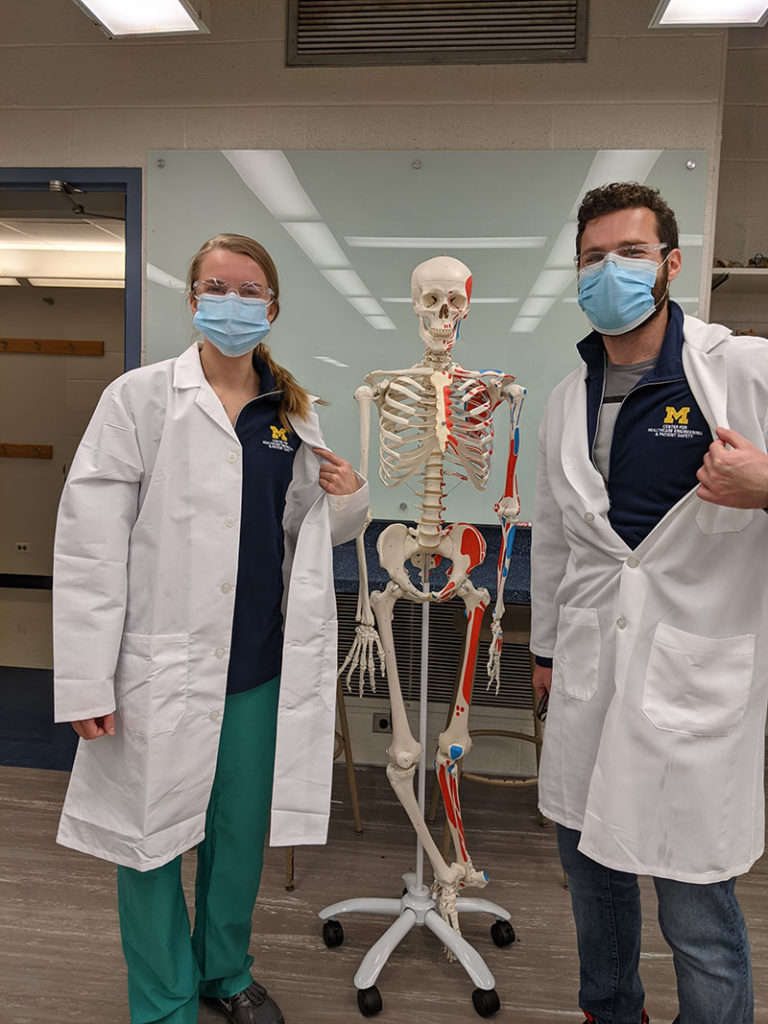
Despite being in a class of 170 people in med school at U of M, CHEPS alums Bassel Salka and Lauren Hirth ended up as anatomy lab partners this year! That skeleton is just jealous it’s not a CHEPS alum too.
View more ‘Where in the World is CHEPS?’ photos here.
Center for Healthcare Engineering & Patient Safety | University of Michigan
[email protected] | cheps.engin.umich.edu

